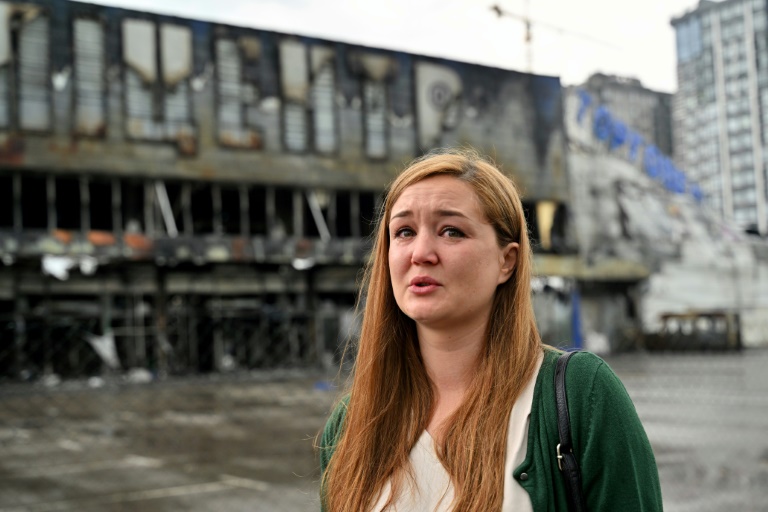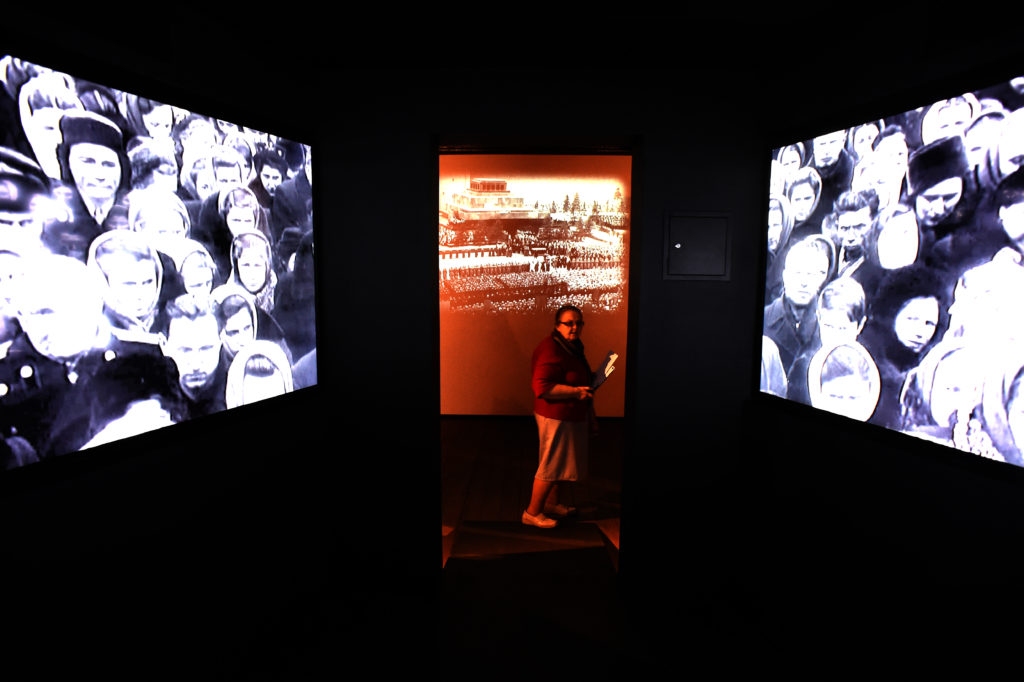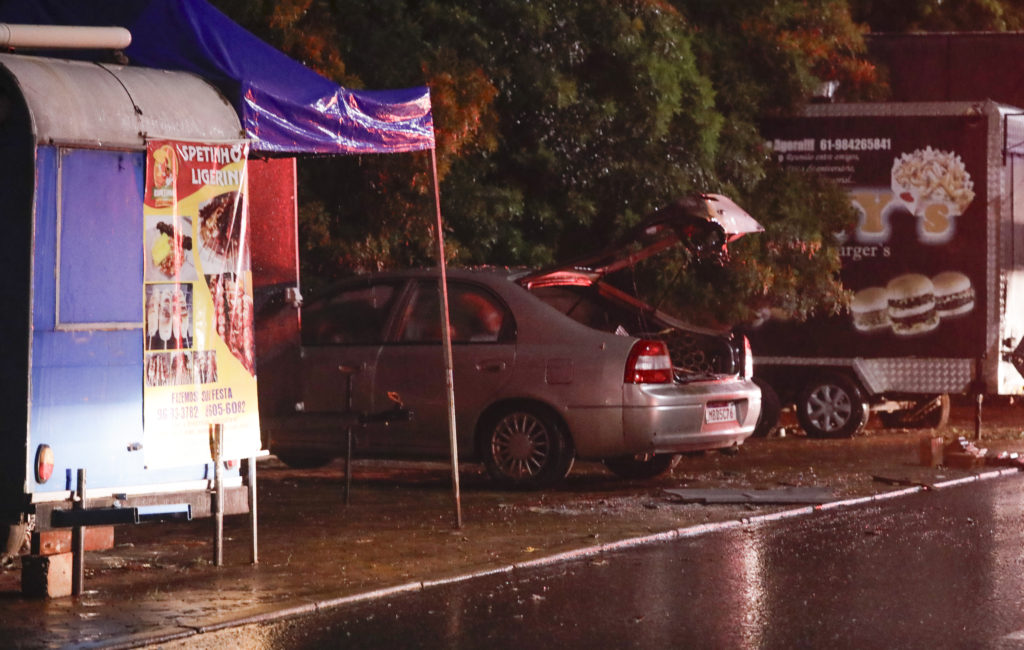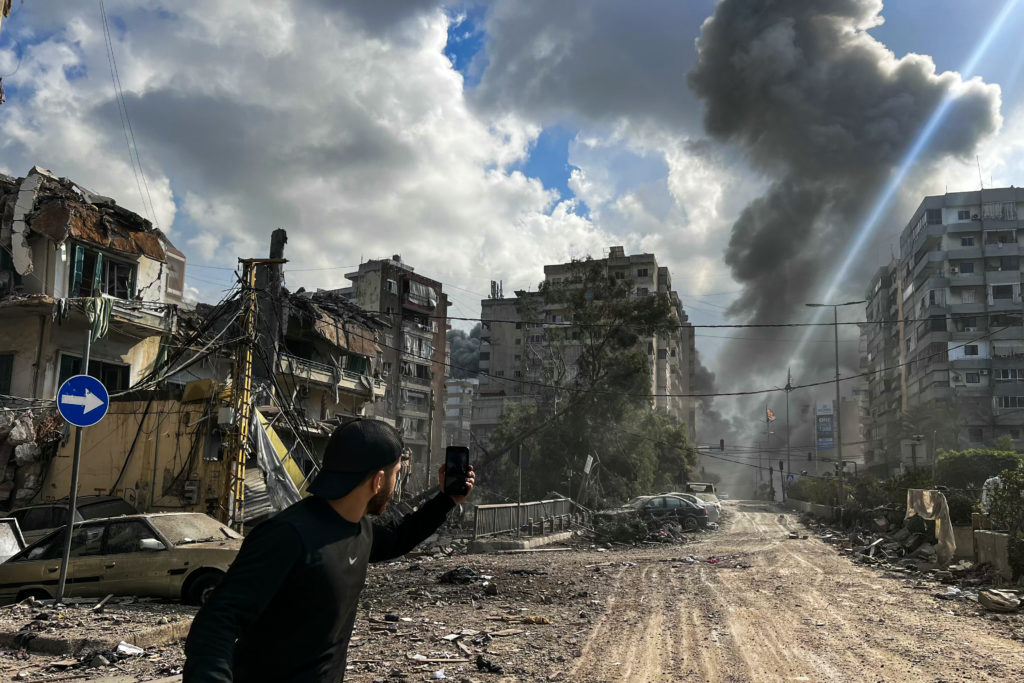Belarusian political refugee Karyna Patsiomkina fled to Ukraine for what she expected to be a safe haven
Belarusian political refugee Karyna Patsiomkina thought she would be out of harm’s way when she moved into a flat in Bucha, a lush suburb north of Kyiv, in early February.
She felt comfortable in Ukraine, she said, a country “100 times more democratic” than her homeland, whose strongman leader has ruled with an iron fist for more than two decades.
The 31-year-old had fled Belarus six weeks earlier for what she expected to be a safe haven because she was facing arrest for anti-government posts.
Some of her friends were already in jail.
But, within only two weeks, on February 24, Moscow had attacked her new home country — using Belarus as a staging ground.
Patsiomkina and most of the hundreds of thousands of Russians and Belarusians living in Ukraine watched in horror.
Many assisted Ukraine but are now facing mounting administrative challenges that may force them out of the country.
Again, in March Patsiomkina had to move as the battle for Bucha raged.
The town has since become known around the world for the alleged war crimes carried out by Russian occupiers there.
Patsiomkina and her flatmate decided to leave on March 8 after the gas and electricity were cut.
After a 48-hour trip to Kyiv — a journey that pre-war would have only taken around an hour — she spent her last pennies on getting to the western city of Lviv.
As soon as she heard that Bucha had been liberated and that evidence of mass atrocities was emerging, she rushed back and volunteered with a psychological support centre and the Red Cross.
She received an official thank you for her work from Bucha city hall in June.
But, a few days later, when she showed up at migration services to extend her residency permit that had just expired, her passport was confiscated.
It was given back to her with a stamp saying she had to leave the country within 10 days, or she would be expelled.
– ‘Massive refusals’ –
Many similar cases have come to light, with applicants saying they are given no reasonable explanation for refusals.
A Kyiv-based NGO helping Belarusian political refugees called Free Belarus Centre and other human rights groups have pointed to “massive refusals” to issue or extend residency permits.
The refusals are particularly surprising given Kyiv officially says it has not changed its policy towards Belarusian citizens.
Political refugees for the most part, they have mobilised massively to help defend Ukraine.
The 175,000 Russian citizens living in Ukraine — according to numbers from the Ukrainian interior ministry — face the same hurdles.
Asked about these claims, Ukraine’s migration agency did not immediately comment.
Andrei Sidorkin, a 41-year-old musician and producer, has been living in Ukraine for 17 years.
He was about to get Ukrainian citizenship when the war started.
When he asked for a new residency permit, he was refused.
“Migration services are refusing to reconsider their decisions,” Sidorkin told AFP.
Without knowing if it would lead to anything, he still brought his case to court.
In any case, going back to Russia is “out of the question!” he said.
“There’s nothing for me there. And I’d be facing 15-20 years in prison,” he said, referring to his support for the Ukrainian war effort.
He was not accepted into the Ukrainian army when he tried to join at the start of the invasion but has been making molotov cocktails and helping evacuate artwork from museums in Kyiv.
– ‘No one needs us’ –
On the “Russians in Ukraine” chat created on messaging-app Telegram in March, some 1,300 subscribers have been expressing their fears and voicing complaints.
Group moderator Yevgenia, who spoke on condition of anonymity, said that “no one has been expelled yet” from Ukraine.
But she said that there have been issues “particularly in small cities near the front lines.”
As for Patsiomkina, the Bucha municipality eventually helped her get her deportation order overturned.
But she is not allowed to work and is stuck in an administrative limbo.
Her patience is running out.
“We Belarusians have become nobodies, no one needs us,” she cried, tears running down her cheeks.
“But we have the same enemy. And we need to fight against that enemy, not run away from it!”










